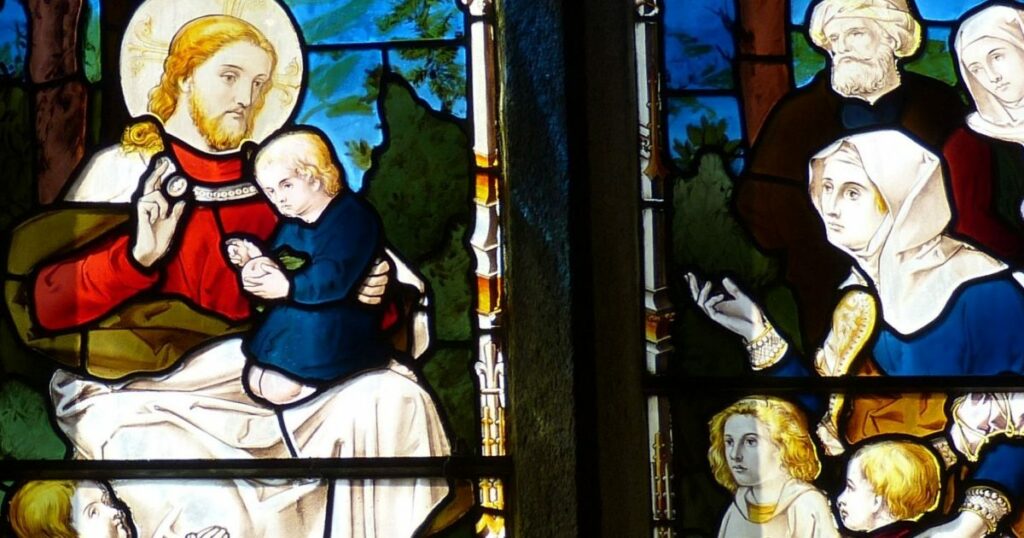Whether children are homeschooled or attend a public, private or Lutheran school, one great way to “train them in the way they should go” is to encourage them to read, and read with them, at home. While Bible and catechetical reading is crucial, reading books of many genres with your children is also beneficial. As you read alongside them, you can reflect on the material with them, helping them learn how to evaluate and what to love, whom to admire and what to condemn.
To aid you in this, Kate Deddens and Leah Bromen of Classical Consultants have generously shared their list of good reads for students of various age levels. Read below their recommendations for high schoolers. (You can also check out their lists for little children and older children).
Note: Children mature at different rates and have different sensitivities, and certain families may find different sorts of content objectionable. Websites like Common Sense Media are helpful resources to ensure that the language and content of particular books are appropriate for your children.
Recommended Reading for High Schoolers
Church History, Theology & Apologetics
- The Abolition of Man — C.S. Lewis
- The Apocrypha (CPH edition)
- The Bondage of the Will — Martin Luther
- The Book of Concord
- Born Again — Charles W. Colson
- Church History — Eusebius
- The City of God — Augustine
- Complete Works (Selections) — Josephus
- Confessions — Augustine
- The Consolation of Philosophy — Boethius
- Ecclesiastical History of the English People — Bede
- The Fire and the Staff — Klemet I. Preus
- The Four Loves — C.S. Lewis
- The Imitation of Christ — Thomas a Kempis
- Mere Christianity — C.S. Lewis
- On the Incarnation — Athanasius
- Orthodoxy — G.K. Chesterton
- The Screwtape Letters — C.S. Lewis
- The Spirituality of the Cross — Gene Veith
- Summa Theologica (Selections) — Thomas Aquinas
- Through Gates of Splendor — Elisabeth Elliot
- The Weight of Glory — C.S. Lewis
Philosophy
- The Best Things in Life — Peter Kreeft
- Gorgias — Plato
- Meditations — Marcus Aurelius
- Meno — Plato
- Pensées — Blaise Pascal
- The Prince — Niccolo Machiavelli
- The Republic — Plato
- Rhetoric — Aristotle
- Rights of Man/Common Sense — Thomas Paine
- The Social Contract — Jean-Jacques Rousseau
- Two Treatises of Government — John Locke
- Utopia — Thomas More
Literature
- 1984 — George Orwell
- Animal Farm — George Orwell
- Beowulf — Anonymous
- Billy Budd, Bartleby, and Other Stories — Herman Melville
- Brave New World — Aldous Huxley
- The Brothers Karamazov — Fyodor Dostoevsky
- The Call of the Wild — Jack London
- The Chosen — Chaim Potok
- The Count of Monte Cristo — Alexandre Dumas
- Crime and Punishment — Fyodor Dostoevsky
- David Copperfield — Charles Dickens
- The Death of Ivan Ilyich — Leo Tolstoy
- Don Quixote — Miguel de Cervantes
- Emma — Jane Austen
- Fahrenheit 451 — Ray Bradbury
- Favorite Father Brown Stories — G. K. Chesterton
- Frankenstein — Mary Shelley
- Gilgamesh — Anonymous
- The Gulag Archipelago — Aleksandr Solzhenitsyn
- Gulliver’s Travels — Jonathan Swift
- Jane Eyre — Charlotte Bronte
- Kristin Lavransdatter — Sigrid Undset
- Les Misérables — Victor Hugo
- Lord Peter Wimsey series — Dorothy L. Sayers
- Moby Dick — Herman Melville
- My Name is Asher Lev — Chaim Potok
- The Nine Tailors — Dorothy L. Sayers
- The Old Man and the Sea — Ernest Hemingway
- A Passage to India — E.M. Forster
- The Pit and the Pendulum — Edgar Allan Poe
- Persuasion — Jane Austen
- Pride and Prejudice — Jane Austen
- Sense and Sensibility — Jane Austen
- Space Trilogy — C.S. Lewis
- Starship Troopers — Robert A. Heinlein
- Till We Have Faces — C.S. Lewis
- To Kill a Mockingbird — Harper Lee
- The Pilgrim’s Progress — John Bunyan
- The War of the Worlds — H.G. Wells
Poetry
- The Aeneid — Virgil
- The Canterbury Tales (Selections) — Geoffrey Chaucer
- The Divine Comedy — Dante Alighieri
- The Faerie Queene — Edmund Spenser
- The Iliad and The Odyssey — Homer
- The Metamorphoses (Selections) — Ovid
- Paradise Lost — John Milton
- Thirty Poems to Memorize (Before It’s Too Late) — David Kern
- Poets: Berry, Blake, Bradstreet, Browning, Byron, Carroll, Crashaw, Dickinson, Donne, Dunbar, Eliot, Frost, Herrick, Herbert, Hughes, Jonson, Keats, Kipling, Longfellow, Milton, Poe, Rosetti, Shakespeare, Shelley, Tennyson, Yeats, Whitman, Wilde, Wordsworth, etc.
Drama
- The Bacchae — Euripides
- Death of a Salesman — Arthur Miller
- The Oresteia — Aeschylus
- Shakespeare — as many as possible
- Theban Trilogy — Sophocles
Historical Fiction & History
- American Documents: Bill of Rights, Declaration of Independence, Constitution
- Winston Churchill, Selected Speeches
- Code of Hammurabi
- Code of Justinian
- Cry, the Beloved Country — Alan Paton
- Le Morte d’Arthur— Thomas Malory
- Democracy in America (Selections) — Alexis de Tocqueville
- The Discoverers — Daniel J. Boorstin
- Federalist Papers (Selections) — Alexander Hamilton et al.
- Histories (Selections) — Herodotus
- History of the Franks — Gregory of Tours
- History of Rome (Selections) — Livy
- Ivanhoe — Walter Scott
- The Law — Bastiat
- Abraham Lincoln, Selected Speeches
- Magna Carta
- The Mayflower Compact
- Narrative of the Life of Frederick Douglass —Frederick Douglass
- History of Plymouth Plantation — William Bradford
- Peloponnesian War (Selections) — Thucydides
- The Red Badge of Courage — Stephen Crane
- Lives of the Noble Greeks and Romans (Selections) — Plutarch
- Sir Gawain and the Green Knight — Anonymous
- The Song of Roland — Anonymous
- Two Lives of Charlemagne — Einhard and Notker the Stammerer
- Up from Slavery — Booker T. Washington
Mathematics & Science
- Elements — Euclid
- It’s a Numberful World — Eddie Woo
- How to Solve It — George Polya
Logic
- Socratic Logic —Peter Kreeft
Art
- Saving Leonardo — Nancy Pearcey
- State of the Arts — Gene Veith
- The Annotated Mona Lisa — Carol Strickland
Music
- The Gift of Music — Jane Stuart Smith and Betty Carlson
Image: “Don Quixote and Sancho Panza at a Crossroads,” Wilhelm Marstrand, c. 1847.






Can you send me a brief list of reading materials, literature, things a student needs etc, for my nephew whom is going to college at one of the schools in California . He is a Missouri Synod Lutheran. I want a few things for his graduation in 3 weeks .